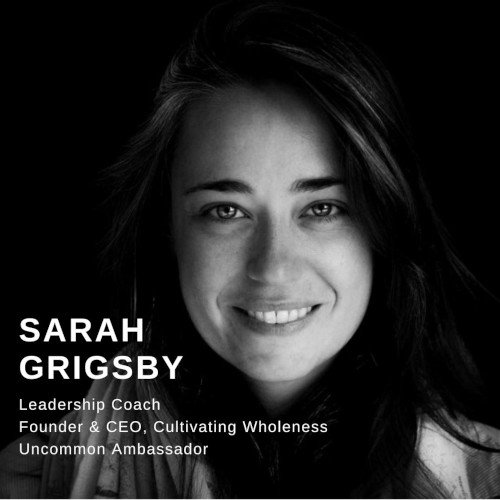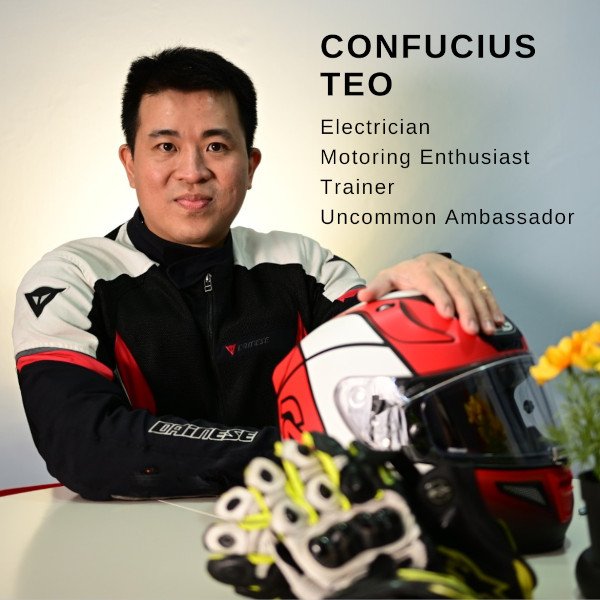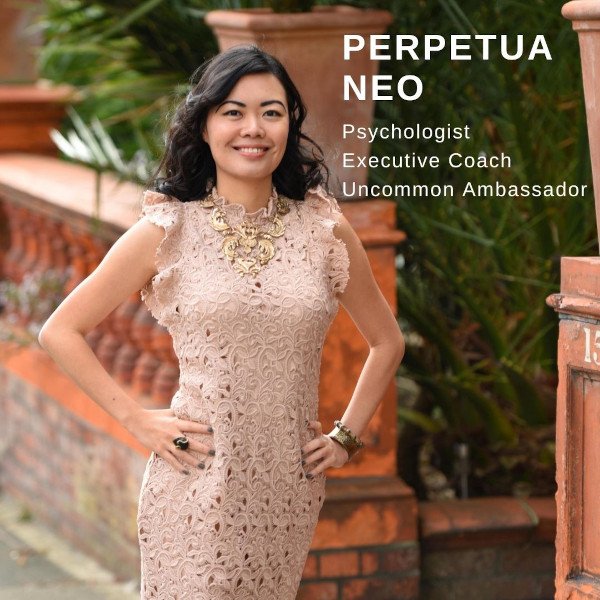Edward Yee
My name is Edward. I was born and raised in Singapore, and I have dyslexia.
Edward Yee, a social entrepreneur, leveraged his dyslexia as an asset to co-found two social ventures and pick up a Rhode Scholarship along the way!
Younger days
Six years ago, I would never have imagined that I would be where I am right now. I wasn’t particularly charitable as a person when I was younger. Doors have opened that I didn't know existed. I didn’t know then that opportunities existed for someone to make a difference.
“A turning point for me was when I found my purpose and passion later on in life. Having this bigger mission driving me changed the game for me. I knew why I was doing things and that allowed me to start doing very well.”
For many years, I did not do well in school. Like most people with dyslexia, academics in Singapore was quite difficult for me. I found it very frustrating because I was putting in the work and effort, yet the results did not really show. There was a hole for many years.
It took time to learn and be comfortable with my dyslexia and to understand my strengths and my weaknesses. This lack of progress in academics led me to focus on different things elsewhere, such as being more involved in CCAs, where I could see the results.
While confidence in academics is very hard to attain when you are in school, it helps to put one gruelling step in front of the other while learning more about yourself in the process.
For example, I knew my working memory was terrible. I could not remember even simple formulas. What worked for me was that I derived the formulas by visualising and understanding how it works on the spot.
I had to come up with a system so I could connect dots and remember where I could retrieve pieces of knowledge. I remember the system but not necessarily what to remember. I found it very useful as I could connect the dots to different places without having to remember them at the same time. While I discovered these did not work for others, they worked for me. That was when I started realising what some of my strengths were.
I did better only after progressing upwards in the education system, when I had more flexibility and latitude in my choice of subjects which my dyslexia allowed me to do better in. Coupled with the help and support of my parents, I did a lot of studying and tried to understand myself better.
Eventually, I did well enough for my A-Levels. I was fortunate enough to get into the programmes I wanted and got a scholarship at NTU. That was the best I had ever done in school at that point and it kicked things off.
Inclusiveness in schools
In Oxford, quite a few friends I know have learning differences and this is embraced. The university provided a lot of resources to help us. For instance, they would set up one-on-one sessions proactively based on our learning differences.
They also purchase technology—such as speech-to-text or text-to-speech technology. The access to typing gave me more space to think and structure my thoughts, and this made a huge difference.
After army days
In the army, I started reading about investments and value investing, started investing and even considered being a fund manager. That gradually branched my interest out into entrepreneurship, where it led me to several ventures such as starting out a podcast to sell health supplements on a subscription-based model.
It was in early 2015 when I started Invenio with my best friend from high school. We weren’t particularly driven by anything but happened to see an opportunity for innovation and disruption. We had tried to start different things before, but they all failed.
This was the first which gained some traction. It kind of worked out after a few failures and awkward pitching competitions. We organised workshops for schools in Singapore and we infused technology, gamification and storyboarding. We got profitable quickly within three months.
Yet after several conversations with my mentor, it led me to drop everything so I could have that space to find myself and rethink my purpose.
In 2016, I ended up travelling for months, beginning with a trip to Bangladesh—to see some of the work of Grameen Bank (a microfinance organisation) and other social enterprises.
I was supposed to be there only for a month, but that trip was extended unexpectedly. What I saw inspired me. I saw how little people had and how they lived their lives differently. I learned a lot more about myself. I saw inspiring people give up the comforts of their life to give back to the local communities, and I wanted to help in the little ways I could.
Purpose: Givfunds and Masref
I realised these social entrepreneurs who were changing thousands of lives had no access to resources, and I think it is unjust that many people around the world do not have the same opportunities, while making do with the little they have and using it to better the lives of others.
That was when I got an inkling that this could be my purpose. I kind of knew how to fundraise, and I was lucky to be where I was in Singapore—having not to worry about putting food on the table. Could I do something about this?
Towards the end of the trip, I ended up in India in late 2016, travelling across the country via a non air-conditioned sleeper train. That was when I met my previous co-founder for Givfunds. We saw similar problems.
Financing did not go to social enterprises outside of the Tier 1 cities, but some of the most impactful social enterprises were in smaller cities and rural areas. These impactful social enterprises were built around the community and did not involve fancy idea pitching.
We managed to find a unique approach to start helping and investing in these social enterprises. One thing led to another. To date, we have done about 60 investments across several sectors and industries, such as in education technology and solar panel providers, mostly in India and Southeast Asia.
For example, we worked with a social enterprise to create and provide affordable solar panels across India. We worked with a bunch of very interesting and inspiring social enterprises and have been very fortunate to support them.
With Nobel Peace Laureate, Muhammad Yunus of Grameen Bank
After Givfunds, I went to the UK on the Rhodes Scholarship to further my studies in impact measurement. I ended up working on something different and worked more on macro issues and systems change within impact investing. It also gave me a bit of space to rethink my purpose and who I am.
As a founder especially, I had the problem of making my startup my identity. Having discovered my purpose, which lies in the intersection of impact, finance and technology and having something bigger driving me, changed the game entirely. I knew why I was doing things and why I had to do certain things, and that allowed me to start doing well and embrace who I am.
That was when I started something new with my current co-founders. Today I run Masref and remain on the advisory board of GivFunds. Masref is aimed to better provide vital financial services for people in distressed economies or countries with high inflation, broken banking systems, and where people don't even trust their own banks.
In some countries where inflation runs as high as 150%, their savings in the bank deplete in value. We end up speaking with people whose parents have passed away and children who have dropped out of school, as they could not even access their savings in their own bank accounts, which is ridiculous.
We want to provide these people with safe foreign currencies or hard currency accounts out of Switzerland using a digital bank. They could access an offshore bank account anytime they want and keep their life savings in US dollars or Swiss francs. After that, we could provide them with financial services they had no access to today such as insurance or loans for housing and education.
Parents and friends
My parents were very supportive from the start. They sat me down and talked me through my dyslexia.
While I was fortunate to be surrounded by friends who do not see dyslexia as a stigma, there was the occasional response that “wow, you made it so far” or dyslexia is something which I overcame.
But a lot of who I am and how I got to where I was—my strengths, my differences, how I see the world, and how I act because of it, could be attributed to dyslexia.
“It was not because I overcame dyslexia to get to where I am but it helped me get to where I am.”
Advice for others
I also recognise that I am quite privileged because a lot of dyslexics do not have the opportunity to fully bloom, whether it was due to certain parts of education that they could not get through or the opportunities didn’t come their way.
But we can see instances of dyslexics around the world with tremendous success and they have done very well because they have found that space to do well. There are numerous examples like Richard Branson, Steve Jobs, Albert Einstein, and Lee Kuan Yew. One common thread that ties them together is how they think and see the world differently.
“Often, like entrepreneurship, dyslexia can feel like a lonely journey. There may be naysayers who don’t believe in you and say that you are stupid.”
There is a healthy humility to understanding and hearing this. There is also a healthy balance of scepticism and a belief in yourself to achieve who you could be as someone with learning differences, and as someone who thinks and sees the world differently.
All I can say is, just press on.










